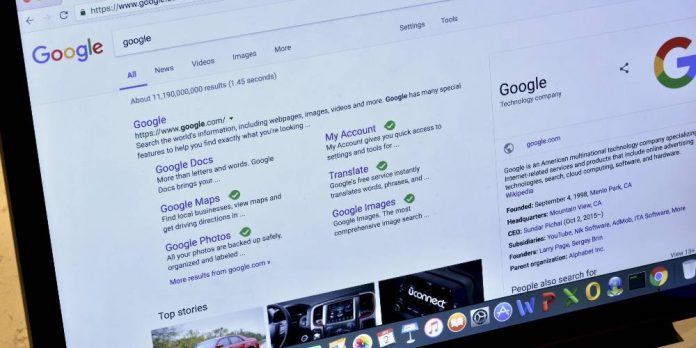For those not too familiar with what goes into search engine optimization (SEO), it might be surprising to hear that, just like most other facets of gambling, regulation has a huge impact on how SEO specialists approach a market.
SEO is everywhere. Basically, we are the cockroaches marketing, you cannot stop us,” joked Ivanna Flynn, SEO Director of ComeOn, who also served as moderator on an SBC Summit Barcelona panel called “SEO in newly regulated markets – reaching new audiences”. “We can be everywhere, but the regulations and licensing are somewhat changing our day-to-day work approach to each market and our strategy.”
Flynn and the following panel discussed the many ways regulations impact their approach and strategy:
Eitan Gorodetsky, CMO Kitcode
Martina Otruba, Lead Product Manager Blexr
Caroline Borman, Head of SEO Betsson Group
When it comes to Google, regulation is great
Looking at regulations purely through the lens of their impact on Google, there is plenty to like.
“Google loves regulation, right? Google loves licensing, they are afraid of fines, so they want to put results that make sense. And once regulation kicks in, you have a lot of different possibilities,” Gorodetsky noted. He also added that, in the US in particular, early affiliates focused content on interviews with lawmakers and explanations of regulations. Those efforts are still paying dividends with ranks today.
For Borman, the benefits extend beyond just climbing Google’s search ranks more easily.
“There’s more guidance, there’s more information. Repeating what we talked about before in another panel, there’s more data available for us because we can use different marketing channels, resource synergies, and syncing, and so forth. But of course, there are some difficulties as well. How do we prepare the team for the knowledge that is required and the skill sets and localization?”
Localized markets make SEO tricky, especially Ontario
Localization was a major topic of the conversation. For one, the panel observed that it is increasingly difficult to gain hyper-local terms because Google puts so much authority on local papers. Now that more and more regional publications are working with affiliates, things get tougher for SEO teams.
“Another thing that we’ve seen in the past few years is that the big publishers, news publishers, for example, have a lot of regional authority. If they want to, they can start to write before deploying affiliate-related terms quite easily,” said Otruba. “That only ever happens in regulated markets, of course, because when they are reputable, they’re not going to endorse or advertise any sort of illegal gambling activities or anything like that.”
Gorodetsky echoed Otruba, noting that these big newspapers can be a big problem for affiliates in particular.
“I figured struggle in regulated markets where a big newspaper publisher would start their own business like the Daily Mirror and stuff like that. They take massive market share because Google attributes to them a lot of trust, and then they won’t send you links. So it’s game over.”
Another avenue where SEO experts in the gambling space are struggling is how to differentiate Ontario from the rest of the Canadian market. An operator like Bet365 may have a specific regulated site in Ontario but a whole different set of users. For SEO teams, generating traffic for a site where the users cannot play is a conversion nightmare.
“I have come up that link building on a local level usually solves this. So you can get really localized links directing from Ontario assets in that sense, it will solve itself,” Gorodetsky suggested.
Brand search results: Is it gambling SEO or not?
In a regulated market like the US, we’ve seen operators spend hundreds of millions on TV ads, radio spots, sponsorships, and out-of-home marketing. The mad push for brand awareness makes sense from the point of view of operators, but it can make measuring SEO performance more difficult. An organization can generate tons of traffic, but it may not be the right traffic.
“To be honest, in regulated markets, you spend so much money on TV or the rest of the channels. SEO enjoys it, but then internally you start struggling right because people will say, ‘We don’t want brand traffic, we want organic,'” Gorodetsky pointed out.
Even with organic traffic, accurately tracking where that traffic lands and what users do once they get there becomes paramount.
“Outside of just looking at the keywords, specifically in regulated markets, what you really have to look at is the quality of the traffic that’s coming in as well. We have to make sure that is that tracking traffic actually converting and are they landing on the proper pages,” said Borman.
Cracking the SEO code in regulated markets may feel daunting and overwhelming. Gorodetsky even noted if he was a US affiliate, he wouldn’t even go the SEO route. He would create an app with some sort of utility instead of competing with the major players. Still, the whole panel continues to pursue SEO in regulated places and encouraged the audience not to get too concerned if you drop in ranks or don’t get traction right away.
“Don’t panic,” Flynn cautioned, If you pick up a penalty, you can clean it up. If something drops, it can come back. Just don’t panic. I mean, mistakes happen, learn from them. But in SEO, you never know what works. So be daring, try it. If it goes wrong, you can fix it.”













